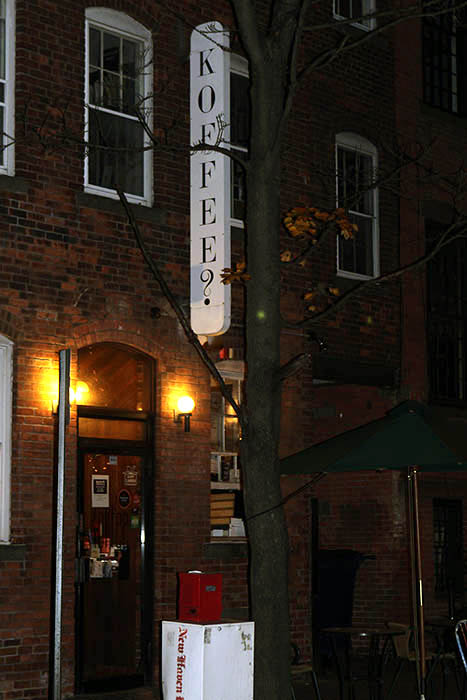
Yale Daily News
A group of about 20 community members and reporters gathered in the back room of Koffee? on Audubon Street earlier in November to discuss access to affordable housing in New Haven, Connecticut, and beyond.
The event, described as a “news book club and community conversation,” was co-hosted by ProPublica and the CT Mirror. Over the past year, CT Mirror reporter Jacqueline Rabe Thomas has investigated housing segregation in Connecticut in partnership with ProPublica’s Local Reporting Network, which supports local newsrooms nationwide with investigative projects. In her reporting, Thomas found that in southwest Connecticut, the gap between the rich and poor is wider than anywhere else in the country. She has focused in particular on state governments and local zoning boards, which she has found often create barriers to affordable housing in the state’s cities and towns. The Nov. 21 meet-up was part of a greater push by ProPublica — and by newsrooms nationwide — to engage and connect communities in reporting which impacts them.
“Usually the people we are reporting on don’t often have the power to be people who [have] a seat at the table,” Beena Raghavendran, a ProPublica engagement reporter who has worked with Thomas on the housing investigation, told the group at the beginning of the meeting. Raghavendran added that it was time to “turn these facts over to you as the experts in this community and as the people that are the stakeholders.”
Attendees drew on their varied roles in the community to describe what brought them to the meet-up. Some were housing professionals — representatives from Connecticut’s Fair Housing Center were in attendance, as was Danya Keene, a researcher studying housing policy at the Yale School of Public Health. Some attendees mentioned the fact that they were parents in the community, sometimes faced with difficult decisions to make about where to send their children to school in segregated districts. Others observed the effects of lack of access to affordable housing in their jobs as Yale staff or as an employee of New Haven’s free library.
Alice Shen, a psychiatry resident at Yale, said many in her field seeks to understand and support mental illness more holistically, within the context from which a person is coming from — including factors like access to housing.
“It’s not right to just pathologize [social issues] when you haven’t fully investigated all the things that are happening locally, that have been happening historically, to affect how people’s daily lives are,” she said.
For the first half of the event, Raghavendran, Thomas and Alvin Chang — a Vox reporter who has covered housing segregation nationally — discussed their reporting in a panel set-up. Conversation ranged from the not-in-my-backyard mentality fueling state legislators’ opposition to affordable housing to how segregated housing creates segregated schools — and what individual parent’s responsibilities are when it comes to deciding where to send their children to school.
New Haven, Thomas said, is more segregated than 88 percent of the country for its black residents, and segregated than 95 percent of the country for its Latinx residents.
“And it’s not getting better,” she said. “It’s actually gotten worse.”
Chang said that on a national scale, climate change would drastically affect housing and access to housing, citing that he believed there would be “a massive upheaval coming.”
In the meet-up’s second portion, attendees split into small groups, ready to take the conversation into their own hands. They discussed what could be done to create change and increase access to affordable housing, from the statehouse to local planning and zoning boards. What could be done about the fact that people experiencing homelessness can face repercussions if they opt to go to a person in power for help — whether that person is a legislator or a reporter? Who else in the community might serve as resources for people searching for affordable housing? And how could local businesses be brought on board to support affordable housing in their neighborhoods?
At the end of the smaller discussions, the group reconvened to debrief, with some participants lingering in conversation long after Raghavendran called the event to a close.
Gina Bingham, a business outreach librarian at the New Haven Free Public Library, said she found the discussion fruitful, and said that it was particularly helpful to speak with community members who saw such varied sides of housing issues.
“I thought it was fantastic,” Bingham said, adding that those present at Thursday’s discussion might bring those conversations to others who weren’t there.
ProPublica’s Local Reporting Network launched in January 2018.
Talia Soglin | talia.soglin@yale.edu







